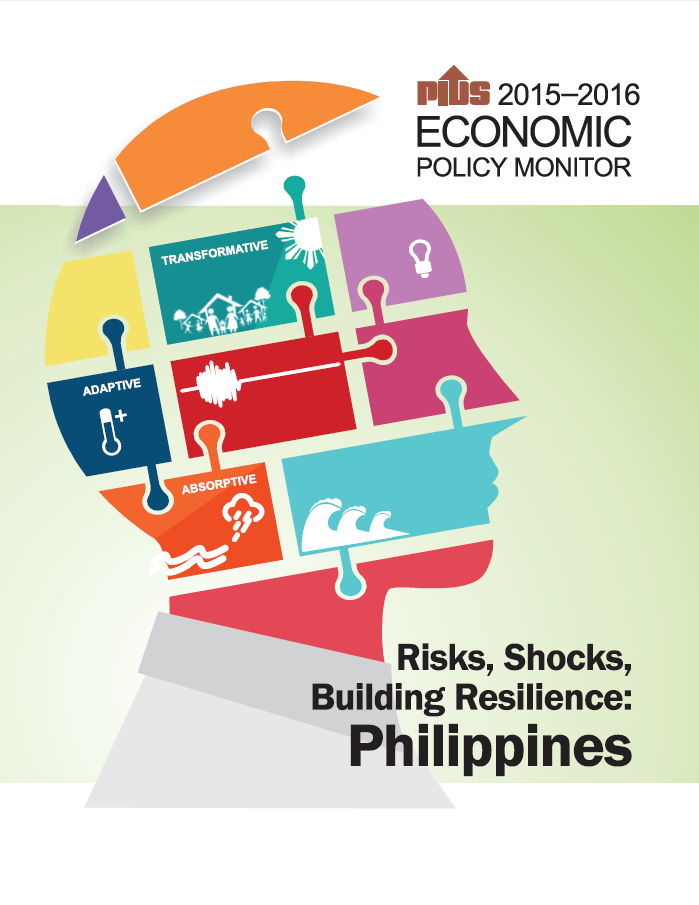Risk, Shocks, Building Resilience: Philippines
 The DPRM theme “Angkop na Kahandaan: Matatag na Ekonomiya at Lipunan” (Investing Risk Reduction for a Resilient Philippines) is comprehensively explained in this sixth issue of the PIDS Economic Policy Monitor. The theme chapter (Chapter 3) discusses the rationale for building economic resilience. Due to overlapping shocks and risks of varied nature, there is a need to look beyond natural hazards and to acknowledge that the sources of risks are many and interconnected. Evidence points to the critical role of good policies in bolstering coping ability and in building resilient systems. Appropriate interventions by way of policies, programs, and projects are crucial to develop three kinds of capacities: absorptive, adaptive, and transformative. Absorption and adaptation are commonly emphasized in current discussions of resilience, risk reduction, and disaster management. Transformation, meanwhile, refers to improvements or changes in the structures and mechanisms that empower economic agents to respond better to further shocks and stresses. With its boosted resilience, a transformed system is more dynamic than its previous state and thus capable of responding to change effectively.
The DPRM theme “Angkop na Kahandaan: Matatag na Ekonomiya at Lipunan” (Investing Risk Reduction for a Resilient Philippines) is comprehensively explained in this sixth issue of the PIDS Economic Policy Monitor. The theme chapter (Chapter 3) discusses the rationale for building economic resilience. Due to overlapping shocks and risks of varied nature, there is a need to look beyond natural hazards and to acknowledge that the sources of risks are many and interconnected. Evidence points to the critical role of good policies in bolstering coping ability and in building resilient systems. Appropriate interventions by way of policies, programs, and projects are crucial to develop three kinds of capacities: absorptive, adaptive, and transformative. Absorption and adaptation are commonly emphasized in current discussions of resilience, risk reduction, and disaster management. Transformation, meanwhile, refers to improvements or changes in the structures and mechanisms that empower economic agents to respond better to further shocks and stresses. With its boosted resilience, a transformed system is more dynamic than its previous state and thus capable of responding to change effectively.
To download, please click here.



































